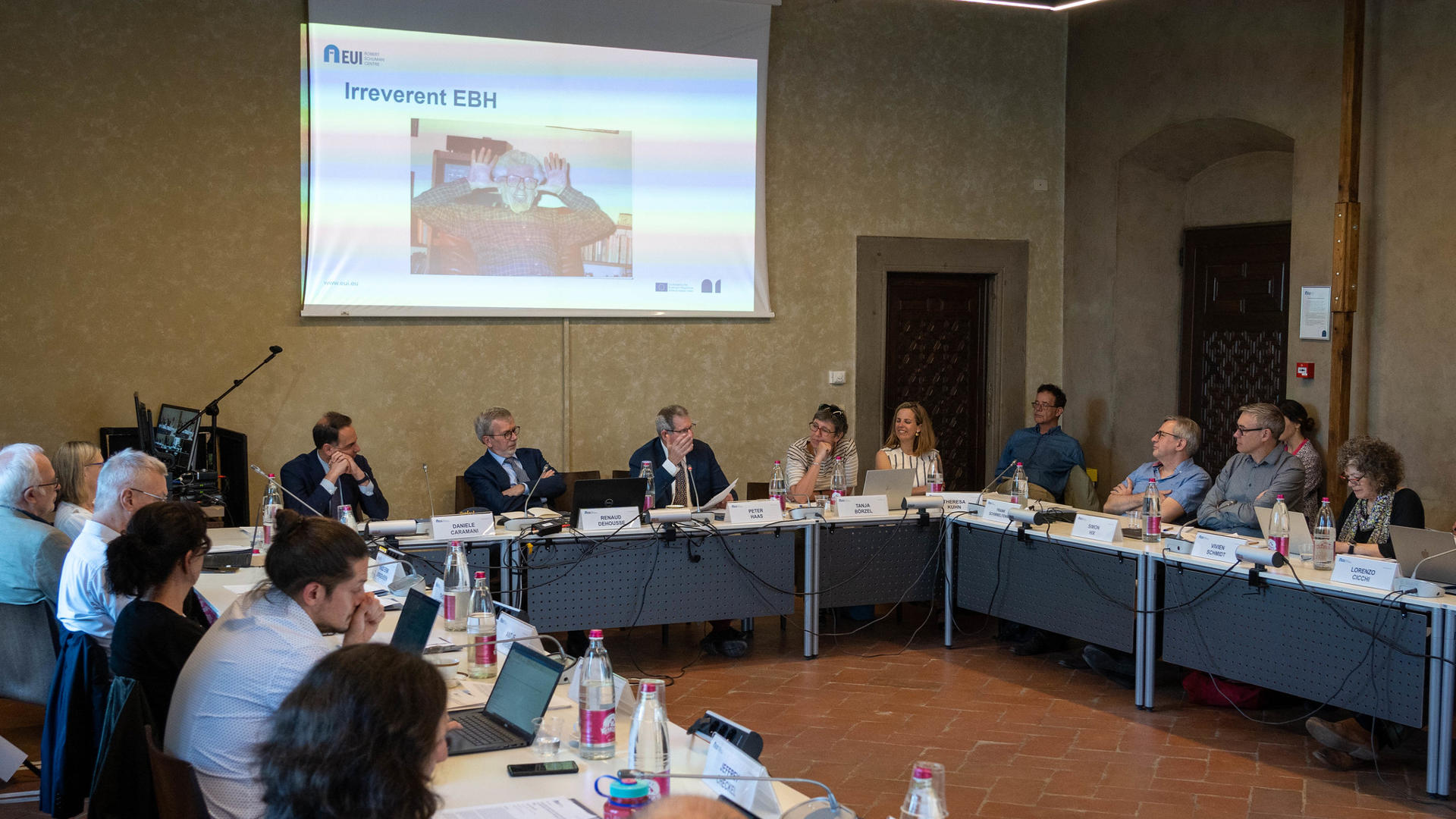
Special issue on the legacy of Ernst B. Haas
About
This Special Issue on ‘Community and governance beyond the nation-state in the 21st century’ celebrates the intellectual legacy of Ernst B. Haas (1924–2003), a leading authority on international relations theory who is remembered primarily for establishing the field of European integration. It is part of various initiatives for the launch of the Ernst B. Haas Chair, which was created in 2020 at the European University Institute in Florence.
The plan for the Special Issue is to publish a series of articles during 2024. These articles stem from a conference organised by the Ernst B. Haas Chair in Florence in May 2023 to mark the 20th anniversary of Haas’ passing, and a panel at the Annual Convention of the International Studies Association in San Francisco in April 2024 on the centennial of his birth, and taking place next to the University of California, Berkeley, where Ernst Haas taught during his entire career. The articles are authored by scholars who have contributed theoretical and empirical research on the themes that Haas pioneered.
Themes
Five broad themes are the focus of specific articles in the Special Issue or run across several of them:
1. Theories
Articles in the Special Issue address theories of international collaboration beyond the territorial and membership nation-state (Haas, Citation1958, Citation1964) and, in particular, the status of neo-functionalism to understand not only integration but also challenges to it. Beyond neo-functionalism, this strand looks at theories of social learning, institutionalism and multi-level governance, but also at the status of meta-theories, such as pragmatic constructivism (Haas, Citation1970, Citation2004).
Integration. Articles revisit the analysis of conditions for regional integration (as in Europe) and the interaction between levels (regionalism in the global system) and between the public (transnationalism) and elites (global governance). European integration (Haas, Citation1961, Citation1971, Citation1975b) is reassessed in the light of the impact of subsequent ‘crises’, from the financial and refugee crises, to Brexit, Covid-19 and the war in Ukraine.
2. Nationalism
Haas’ last years of work were devoted to nationalism (‘liberal’ nationalism in particular) and the possibility of a transnational community (Haas, Citation1997, Citation2000). His reflections on these topics inform us today about the challenges to rationalised global governance through the rise of nationalism, ‘civilizations’, multiple modernities (processes that he debated with Karl W. Deutsch and Shmuel N. Eisenstadt) and other types of territoriality.
3. Environment, human rights, trade
Haas also produced work in which he applied his theories to policy areas such as environmental sustainability and resource exhaustion, socio-economic inequality, human rights and labour standards, as well as trade and global financial interdependence (Haas, Citation1978; Haas & Haas, Citation2002). This allowed him to assess and compare the degree of international collaboration in a number of policy fields.
4. Knowledge, technocracy, learning
Of particular relevance is also Haas’ work on role of experts and advisors (and their influence on politicians and bureaucrats). These themes relate closely to his depoliticised and holistic vision of policy making at supra-national level (Haas, Citation1975a, Citation1990; Haas & Haas, Citation2002). The relationship between knowledge and power transpires in the analysis of ‘epistemic communities’. The concept of legitimacy is re-elaborated beyond input and output legitimacy in relation to procedural legitimacy (including freedom of information, consultation, impact assessment, participatory budgeting among others) in technical policies.
Articles
- Caramani, Daniele, Community and governance beyond the nation-state in the 21st century: introduction to the special issue on the legacy of Ernst B. Haas
- Caramani, Daniele, A cleavage-based conceptualisation of politicised global integration
- Schimmelfennig, Frank, Crisis and polity formation in the European Union
- Börzel, Tanja A., Regionalism and liberal nationalism in the European Union. A case Sui Generis?
- Haas, Peter, International Relations and Ernst B. Haas, Ernst B. Haas and International Relations
